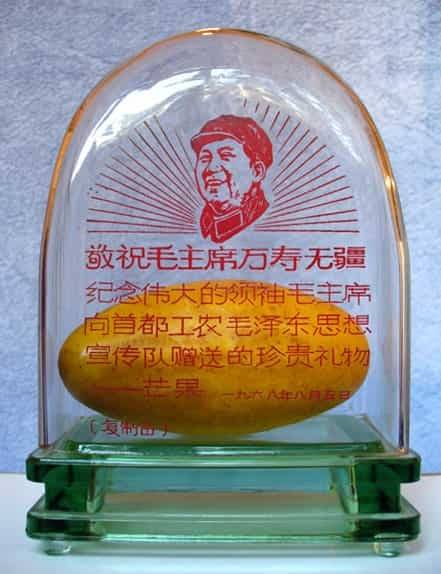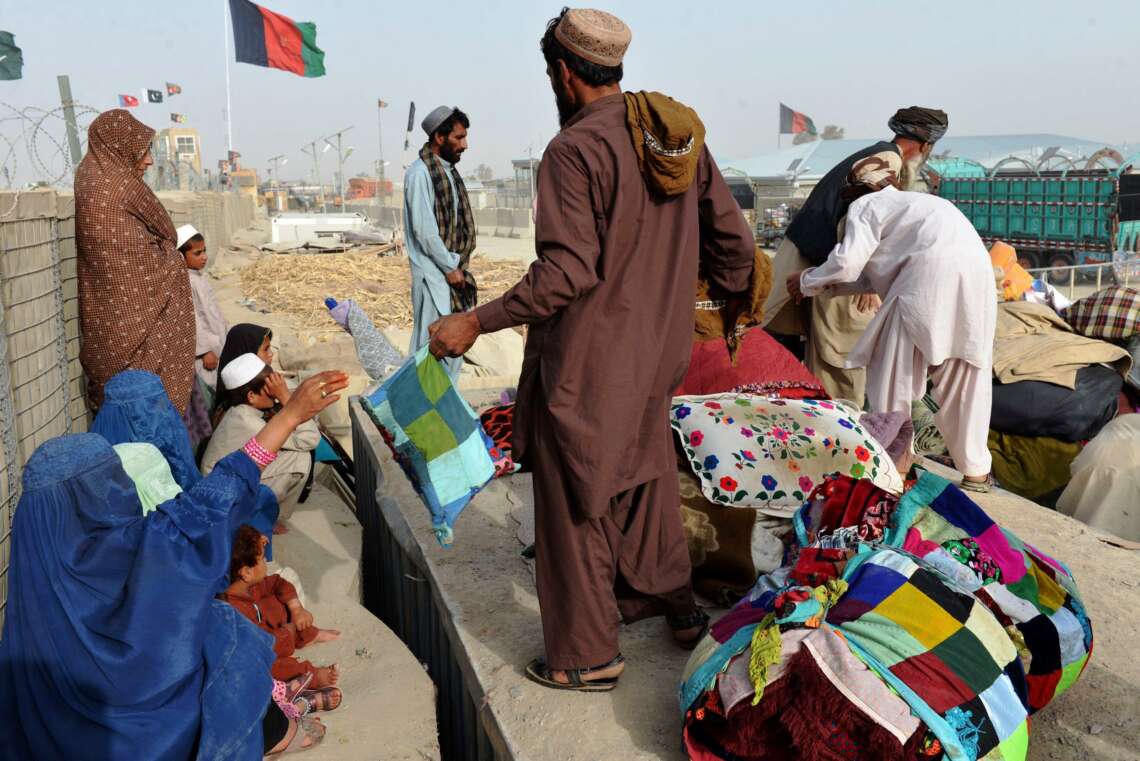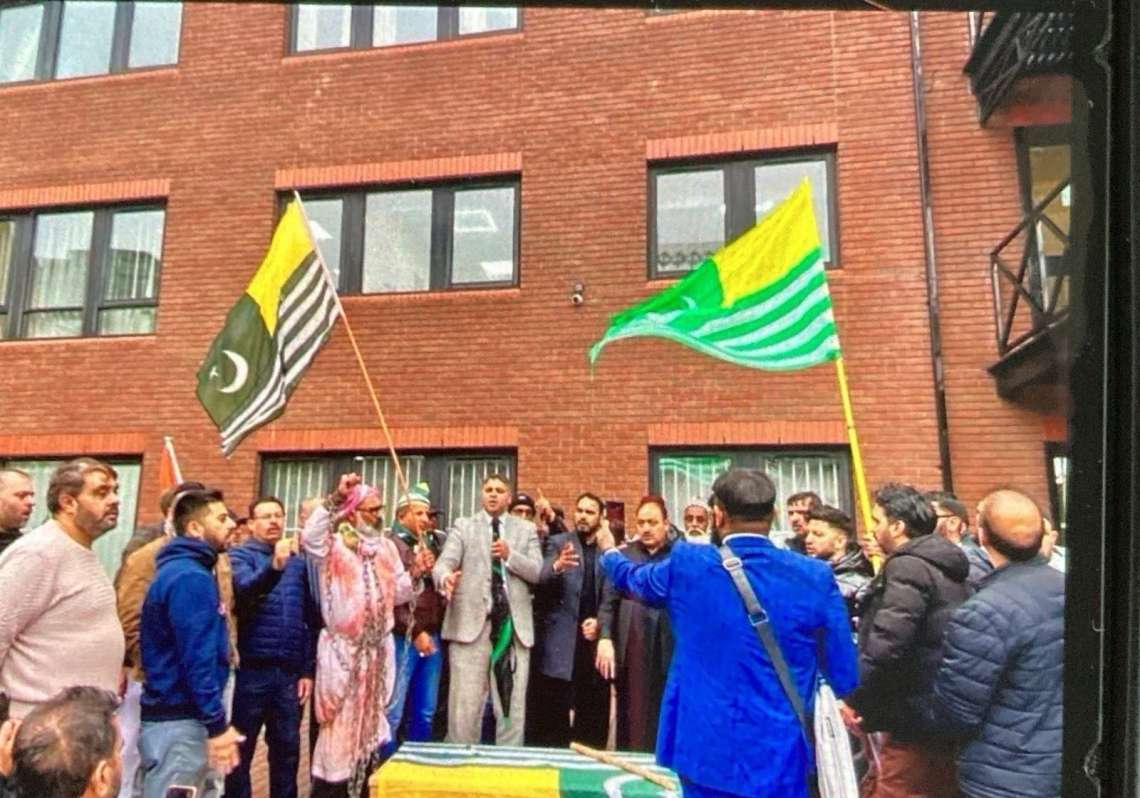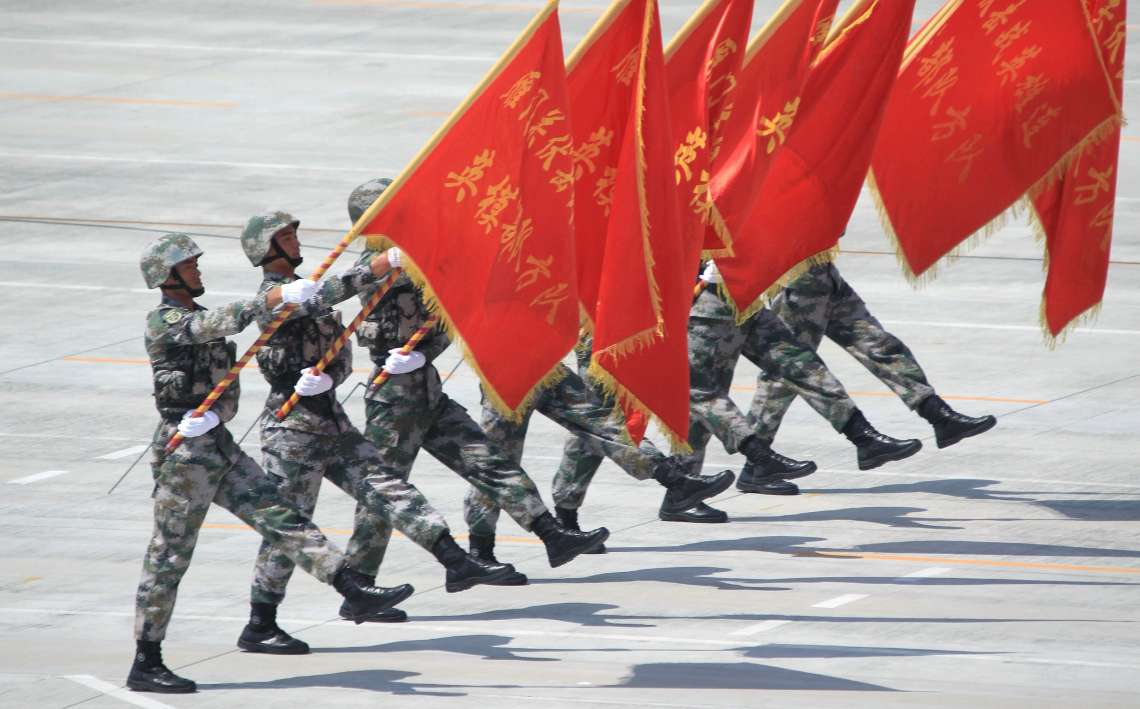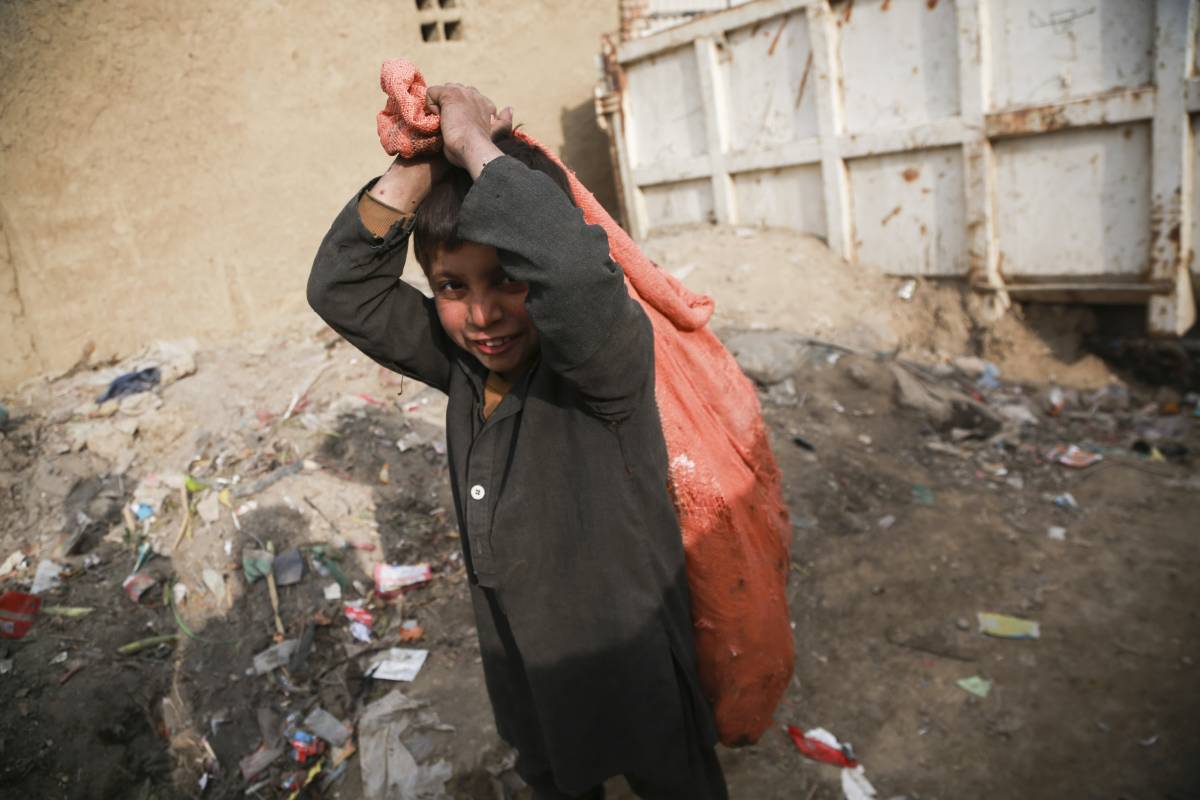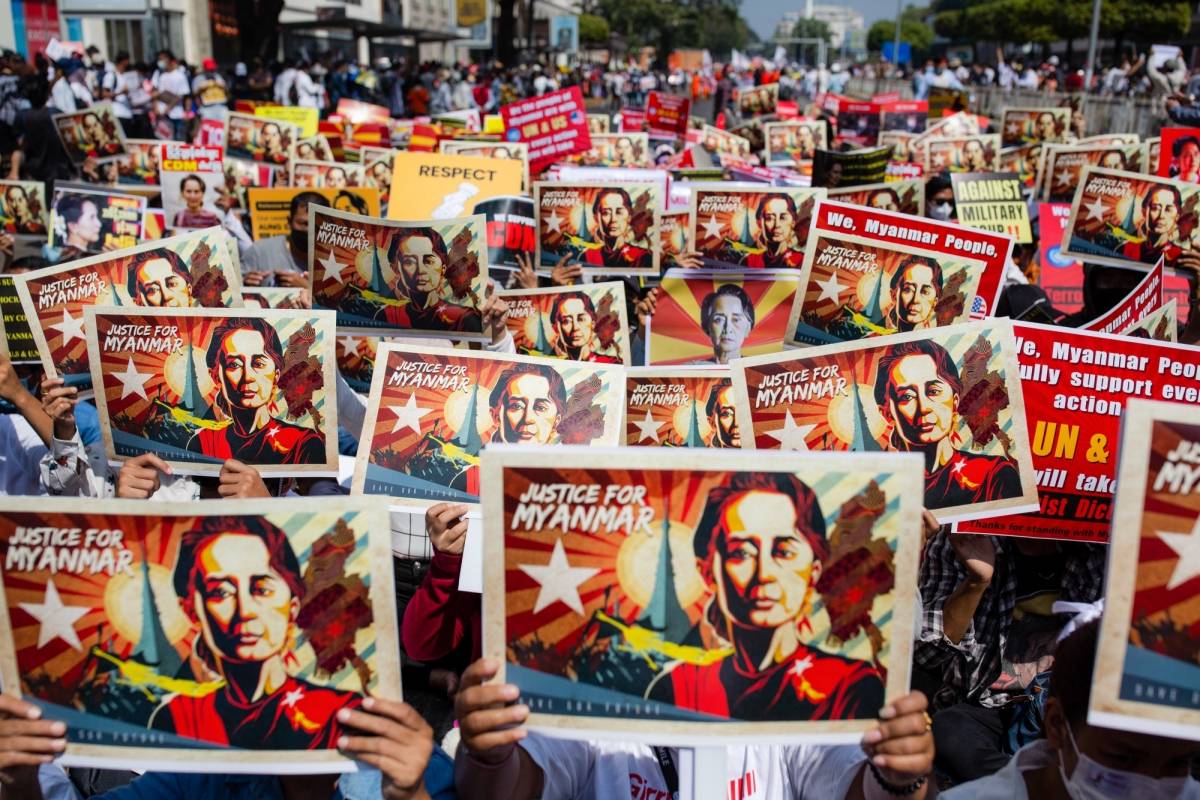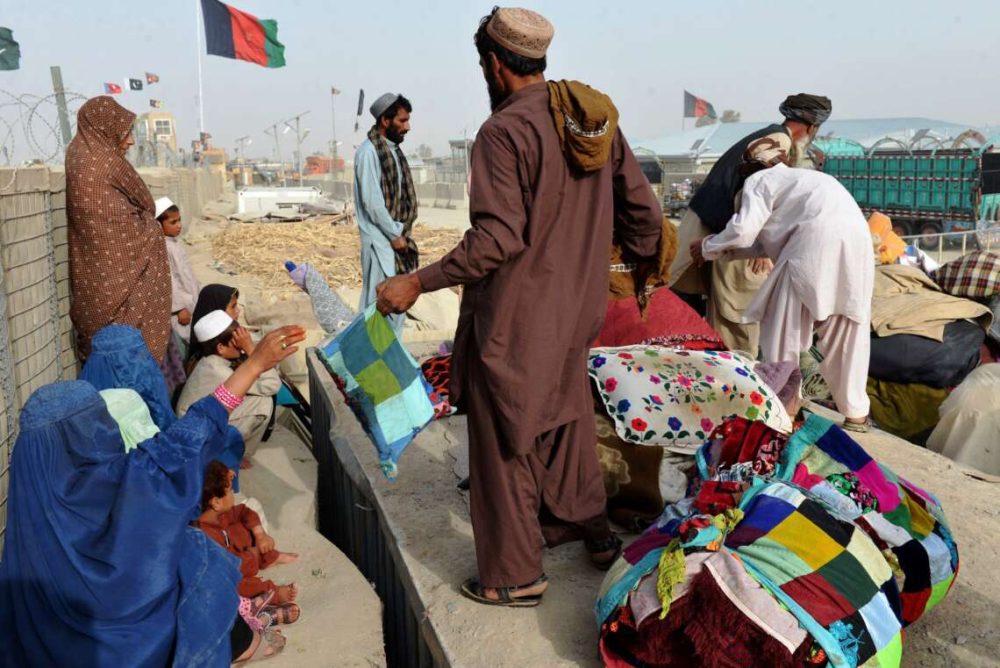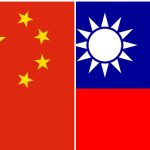Around the time when Pakistan and China were launching their ongoing diplomatic bromance in the 1960s, the juicy and pulpy fruit had sweetened bilateral ties, and impacted Chinese history in unexpected ways, reports Mrityunjoy Kumar Jha
Pakistan’s all weather friend China has refused to accept sweet and juicy mangoes sent by the Pakistani president Arif Alvi to his Chinese counterpart Xi Jinping.
The stated reason�quarantine regulations prevent the gift from reaching the Chinese President.
The same fate befell the prized Chaunsa mangoes in the US, Canada, Nepal, Egypt, Sri Lanka and many other countries. The fear of Covid has forced the crestfallen mangoes to return to their home base in the Pakistani foreign office, reports Pakistani daily The News.
Quoting its sources, the daily said that the Pakistan Foreign Office had also listed the French president among the expected recipients of the gift. Paris has so far not responded to Pakistan’s outreach.
The Foreign Office is dispatching “Chaunsa” mangoes to the heads of more than 32 countries including Iran, Gulf countries, Turkey, United Kingdom, Afghanistan, Bangladesh and Russia, on behalf of the president as part of, some would say, anachronistic “Mango diplomacy,” which may not be fashionable in the digital age.
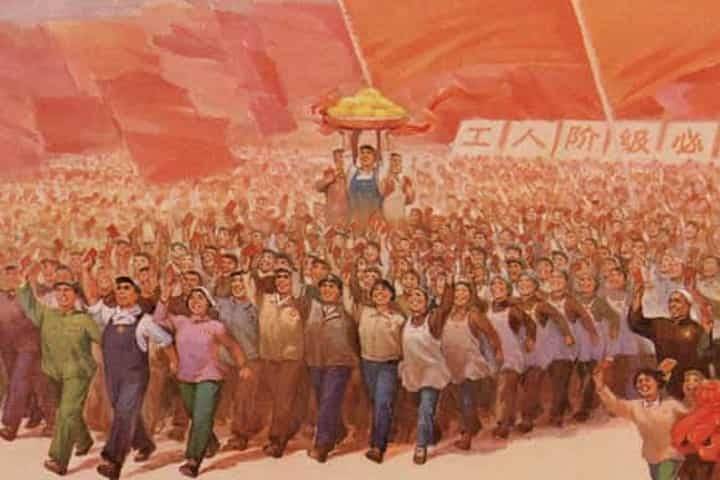
It is not known whether mangoes have been sent to India or not. In 2014, former Prime Minister Nawaz Sharif had sent a box of choicest Pakistani mangoes, to his Indian counterpart Narendra Modi.
Pakistani mangoes have a history in China. Around the time when the two countries were launching their ongoing diplomatic bromance in the 1960s, the juicy and pulpy fruit had sweetened bilateral ties, and impacted Chinese history in unexpected ways.
In August 1968, a crate of mangoes was gifted to Chairman Mao Zedong by Pakistani foreign minister, Mian Arshad Hussain, who was also high commissioner to India earlier, in Beijing.
ALSO READ: Pakistan to grant Jadhav right of appeal
The book “Mao’s Golden Mangoes and the Cultural Revolution” edited by historian and curator Alfreda Murck tells us what transpired next.
“The Pakistani mangoes, exotic and virtually unheard of in 1960s China, briefly played an important role in Cultural Revolution discourse, as the physical expression of Mao’s love and concern for his people at a time when the Mao cult was at its most frenzied,” the introduction of the book says.

“The mangoes were transported nationwide, despite their deterioration in the summer heat; they were replicated in wax and placed in glass vitrines for presentation and display; paintings and photographs of the fruit became objects of veneration; and they appeared as an auspicious motif on the ubiquitous Mao badges, on quilts, on household goods, and on floats at public ceremonies,” it added. The events related to the mangoes were later termed as the “mango fever” or the “cult of the mango.”
The frenzy over that first crate of Pakistani mangoes in China subsided just months later. But relations between the two countries left an enduring aftertaste.
Since then, mangoes became the “soft power” tool of choice in Pakistan.
In an interesting aside, mangoes have been used in diplomacy and intrigue, with an exchange of the fruit taking place regularly between the leaders of Pakistan and India as well as locally between political entities and diplomats posted in Pakistan. In the 1980s Pakistani leader Gen Zia-ul Haq had sent �Anwar Rataul’ mangoes to the then Prime Minister Indira Gandhi. In 2001, the then Pakistani ruler General Pervez Musharraf had sent mangoes to the then Prime Minister Atal Bihari Vajpayee and Home Minister L K Advani before coming to India for the Agra Summit.
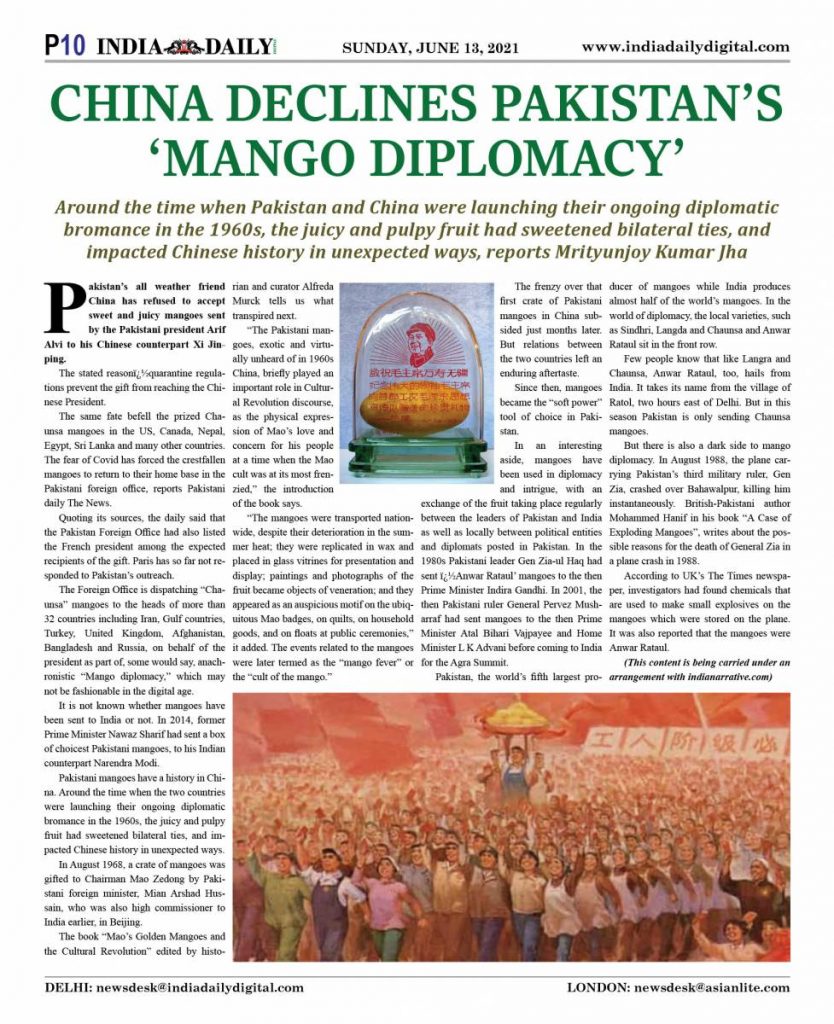
Pakistan, the world’s fifth largest producer of mangoes while India produces almost half of the world’s mangoes. In the world of diplomacy, the local varieties, such as Sindhri, Langda and Chaunsa and Anwar Rataul sit in the front row.
Few people know that like Langra and Chaunsa, Anwar Rataul, too, hails from India. It takes its name from the village of Ratol, two hours east of Delhi. But in this season Pakistan is only sending Chaunsa mangoes.
But there is also a dark side to mango diplomacy. In August 1988, the plane carrying Pakistan’s third military ruler, Gen Zia, crashed over Bahawalpur, killing him instantaneously. British-Pakistani author Mohammed Hanif in his book “A Case of Exploding Mangoes”, writes about the possible reasons for the death of General Zia in a plane crash in 1988.
According to UK’s The Times newspaper, investigators had found chemicals that are used to make small explosives on the mangoes which were stored on the plane. It was also reported that the mangoes were Anwar Rataul.
(This content is being carried under an arrangement with indianarrative.com)
ALSO READ: Wind storm shakes Pakistan


